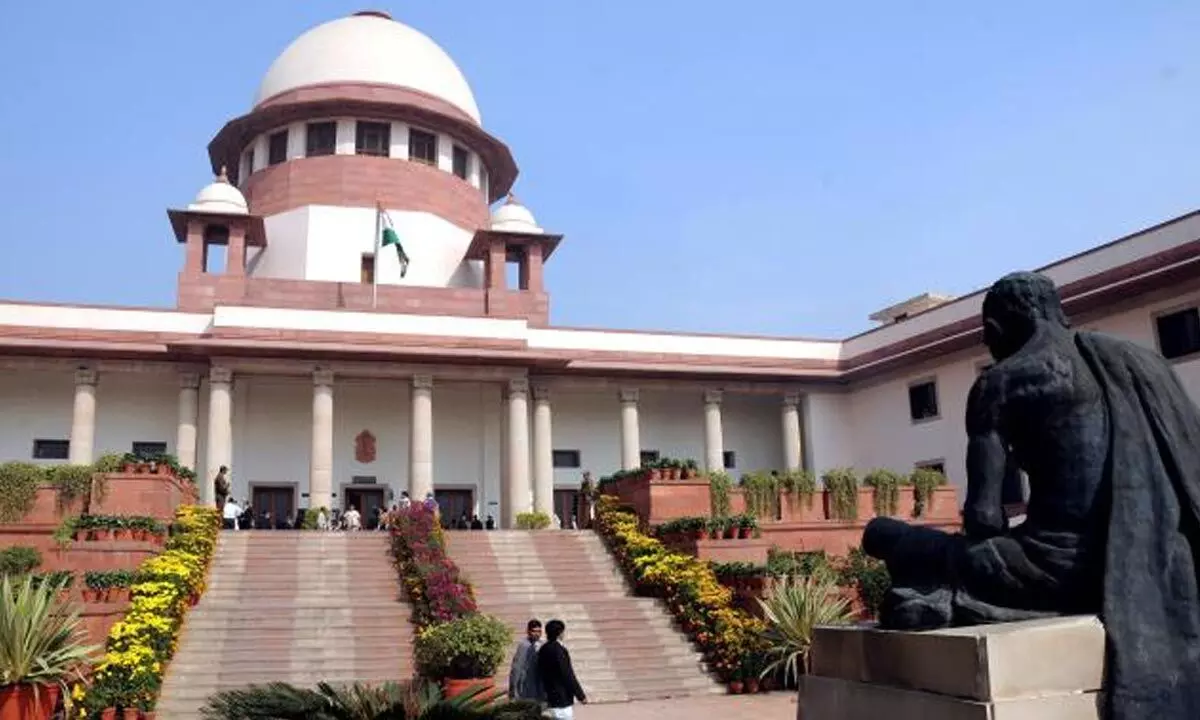GST Council recommendations not binding on Centre, state govts: Supreme Court

Supreme Court of India
The Supreme Court on Thursday said the recommendations by the GST Council are not binding on the Centre and the state governments.
New Delhi: The Supreme Court on Thursday said the recommendations by the GST Council are not binding on the Centre and the state governments.
A bench, headed by Justice D.Y. Chandrachud and comprising Justices Surya Kant and Vikram Nath said: "The deletion of Article 279B and the inclusion of Article 279(1) by the Constitution Amendment Act 2016 indicates that the Parliament intended for the recommendations of the GST Council to only have a persuasive value, particularly when interpreted along with the objective of the GST regime to foster cooperative federalism and harmony between the constituent units."
The bench said that both the Parliament and the state legislatures can equally legislate on matters of Goods and Service Tax.
"The 'recommendations' of the GST Council are the product of a collaborative dialogue involving the Union and states. They are recommendatory in nature. To regard them as binding edicts would disrupt fiscal federalism, where both the Union and the states are conferred equal power to legislate on GST", it added, in its 153-page judgment.
The bench noted that the government, while exercising its rule-making power under the provisions of the CGST Act and IGST Act, is bound by the recommendations of the GST Council. "However, that does not mean that all the recommendations of the GST Council made by virtue of the power Article 279A (4) are binding on the legislature's power to enact primary legislations," it added.
It held that it is not imperative that one of the federal units must always possess a higher share in the power for the federal units to make decisions. "Indian federalism is a dialogue between cooperative and uncooperative federalism where the federal units are at liberty to use different means of persuasion ranging from collaboration to contestation," it added.
"We are in agreement with the High Court to the extent that a tax on the supply of a service, which has already been included by the legislation as a tax on the composite supply of goods, cannot be allowed."
The bench said neither does Article 279A begin with a non-obstante clause nor does Article 246A state that it is subject to the provisions of Article 279A. "The Parliament and the state legislatures possess simultaneous power to legislate on GST. Article 246A does not envisage a repugnancy provision to resolve the inconsistencies between the Central and the State laws on GST," it said.
"If the GST Council was intended to be a decision-making authority whose recommendations transform to legislation, such a qualification would have been included in Articles 246A or 279A. Neither does Article 279A begin with a non-obstante clause nor does Article 246A provide that the legislative power is 'subject to' Article 279."
The bench said there would have been an express provision in Article 246A, if the GST Council were to be intended to be a constitutional body whose recommendations transform into legislation without any intervening act.
The top court judgment came on an appeal filed by the Centre challenging the Gujarat High Court division bench judgment passed on January 23, 2020, which quashed 2017 notifications to levy service tax on the importer.
The high court allowed a petition instituted by the respondents under Article 226 for challenging the constitutionality of two notifications of the Centre.














